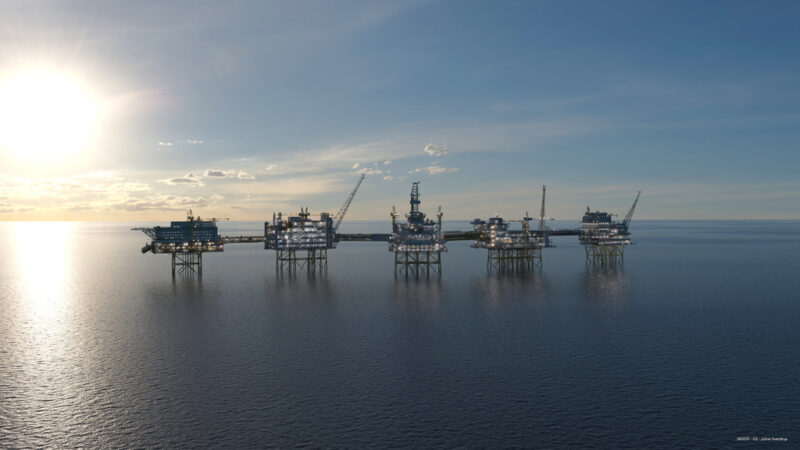Greta Thunberg is urging small island diplomats to put Canada and Norway’s oil interests in the spotlight as the two countries seek election to the UN security council.
Thunberg is one of four youth activists to sign a letter, along with 22 climate scientists, raising “grave concerns” about the Arctic nations’ policies to expand and subsidise fossil fuel extraction.
Canada and Norway are competing with Ireland for two seats on the UN security council, both promising to address climate change as a threat to peace and stability.
Yet their support for increased oil and gas production is incompatible with international climate goals, argued signatories to the letter, published in full below.
They called on small island developing states, as some of the most vulnerable countries to climate breakdown, to use their vote to highlight these concerns.
“For the young generation who will inherit the consequences of these decisions, it is critical that those who claim to be leading on climate action are held to account for decisions they are making back at home,” the letter said.
“As the Ambassador of a country that understands the grave risk posed to our security and yours, we ask that you raise these issues in your conversations with representatives of the candidate countries, and demand that they unite behind the science.
“If Norway and Canada are serious about our climate security, they should commit to no new fossil fuel exploration or extraction, and begin phasing down their domestic production at a pace that is consistent with limiting warming to 1.5C.”
Youth + scientists letter to SIDS Ambassadors re UN security council June 9, 2020 (Text)
Candidates are running for a two-year term on the security council starting in 2021, with seats allocated by region. Regardless of whether their seats are contested, they must win the backing of two thirds of member states.
While their numbers are not sufficient to wield veto power, the 38 small island developing states hold 20% of votes.
Ambassador Lois Young, Belize’s permanent representative to the UN and chair of the Alliance of Small Island Developing States (Aosis), said in a statement it was a “human imperative” to limit global heating to 1.5C. She called on all security council members to integrate climate risks in their UN work for global peace and their domestic policies.
“We would urge all major emitters to close the gap between where we are now and where we need to be for 1.5C,” she added.
In security circles, climate change is typically described as a “threat multiplier”: impacts like floods and droughts do not start wars but can intensify competition for resources, drive migration and stoke tensions between rival groups.
Climate news in your inbox? Sign up here
Litokne Kabua and Ranton Anjain from the Marshall Islands and Pauline Tomren from Norway are the other youth activists, alongside Thunberg, demanding that would-be climate leaders respect the science.
They cite the 2019 Production Gap Report, which showed governments are planning to extract 120% more fossil fuels than can be burned under a 1.5C global warming limit – the stronger target in the Paris Agreement, seen as essential to the survival of low-lying island states.
Gail Whiteman, founder of Arctic Basecamp and professor of sustainability at the University of Exeter, UK, explained why she added her signature to the campaign.
“Climate change is a hugely important security topic, it is a hugely important global risk that is coming fast down the pipeline,” she told Climate Home News.
“On both the Canadian and the Norwegian side, they have some quite strong stated policies on climate change but when you look at the details, that is very problematic.”
Kenya places climate disorder at centre of UN security council bid
Ottawa is criticised in the letter for being the second biggest financier of fossil fuels in the G20 and backing controversial oil pipelines. Oslo is called out over its support for Arctic oil drilling.
On Monday, the Norwegian parliament’s finance committee recommended tax relief for its petroleum industry, which has been hammered by the coronavirus pandemic.
WWF, which has long been critical of Norway’s oil tax regime, said the move would enable oil companies to pay less than 10% of investments costs for projects approved before the end of 2023. This, it said, would bolster investments in oil fields that would otherwise be unprofitable and increase activity in the Arctic.
The measures, which have already been agreed by six political parties, are expected to be approved by full parliament on Friday.
Next week, lawmakers are also expected to vote on a government recommendation that rejects greater protection for the Barents Sea, in the Arctic Ocean, and allows for continued oil and gas developments.
